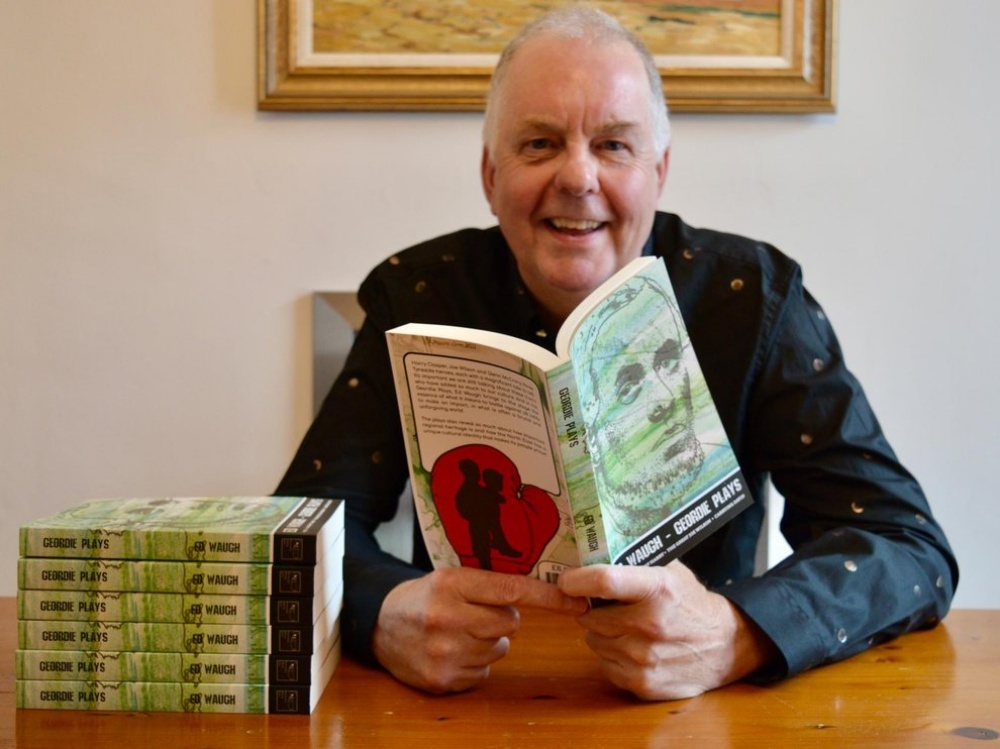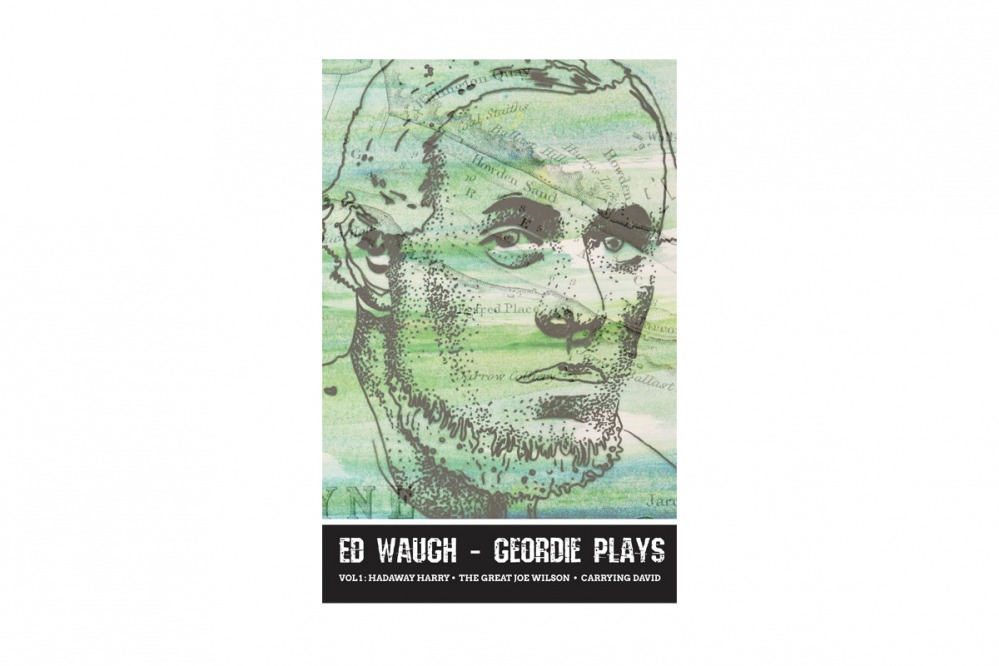Remembering Our Region’s Rowing Heroes

On the 200th anniversary of the very first Newcastle rowing regatta, and the 150th anniversary of local oarsman James Renforth’s death

Geordie Plays (volume one) is Ed’s new book which features three plays, one of which is adapted from the story of local rower Hadaway Harry. All three plays, which premiered in the North East, have gone on to tour with sell-out shows across the region.
Now Ed’s book has been included in a small time capsule buried beside Newcastle Cathedral. ‘It won’t be opened until June 2121, which will mean these fantastic stories of forgotten Geordie heroes will be available for future generations,’ Ed says. ‘I doubt I’ll be around to see that, though.’
As we take a look back through the North’s rowing history, we discover why Harry Clasper (also known as Hadaway Harry), from Dunston, is still admired in the world of rowing today, along with two other greats: Bob Chambers and James Renforth.
Harry was a world champion rower, and later a trainer of world champions. ‘He trained Bob Chambers, a Walker lad who is regarded as the best ever natural rower,’ Ed adds. ‘Harry actually designed and built boats. He invented the thin shape of the sculls we see today in the Olympics and The University Boat Race. Sadly, both men were taken too early.’ When Bob died in 1868, aged 37, Ed claims more than 60,000 people lined the route of his funeral cortege, and when Harry died in 1870, aged 58, it’s estimated 130,000 lined the route. To put that into perspective, the population of Newcastle at the time was only around 112,000.
Joe Wilson, the subject of Ed’s second play, is linked to our rowing history too. He was a prolific songwriter, but was a friend of Harry’s and enjoyed boat racing too. ‘Joe penned 360 songs and poems in his brief lifetime, earning him the title The Bard of Tyneside,’ Ed explains. ‘Thankfully people like David Clasper (Harry’s great, great nephew) and historian Dave Harker have written excellent books about Harry and Joe respectively that help keep the flame alive. And the plays have contributed to that legacy. Their exploits should be taught in schools in the North East.’
James Renforth from Gateshead is described by Ed as ‘another great Geordie who was a world champion rower’ and shouldn’t be forgotten. Sadly, James died in 1871 while rowing in Canada, aged 29. Ian Whitehead’s book, James Renforth Champion Sculler of the World, details his life, but a highlight in his career has to be when he entered a sculling race at the Thames Regatta in 1868. James won the race, beating Thames oarsman Harry Kelley, and received a £90 prize.
‘As with all of these brilliant individuals, you don’t get to become a world champion or write fantastic songs without talent, but you also need dedication and sacrifice,’ Ed says – and that’s what he highlights in his plays. ‘At some point they were all defeated, written off and psychologically down but they overcame these huge obstacles. That’s what makes these stories so brilliant and endorses what I like to think is the Geordie spirit.
‘Remember, this was the start of the industrial revolution and people were moving from pit villages like Walker and Heaton to live in the centre of Newcastle to work in factories. There was acute poverty, slum housing and dreadful diseases – but a sense of community, a belongingness, was being formed. This was 20 years before Richard Grainger and John Dobson redesigned and rebuilt the centre of Newcastle, however, there was the start of an identity and that’s what the 1821 regatta represented.’

While the 1821 regatta was organised by and arguably aimed at the more privileged parts of Tyneside at that time, Ed admits it must have been a spectacular sight for everyone. ‘It was at these civic regattas that ordinary working men like Harry (a miner until after the strike of 1831) saw the opportunity to become a professional rower,’ he tells us. ‘Our 19th century rowing history is about identity. From 1845, these great rowers became national and international figures. It was the start of mass communications (railways now carried newspapers within hours to the far flung quarters of the country). A rivalry formed between the Tyne and Thames men, who were the undisputed champions. Harry changed that. Not on his own, but by leading with his attitude and dedication. He was inspired to develop lighter, faster boats, improved the stroke of the rowers, and even invented a revolutionary training regime.
‘The rowing battles on the Thames and Tyne must have been legendary. Geordies who had emigrated to London, sailors and women who had moved to the capital to enter service, all lined the route making their presence felt, shouting for these Geordie heroes. It reminded them of home. Think about how you feel when you see the Tyne Bridge from the train when you’re coming into Newcastle. That’s what it must have felt like to our exiled brethren when the Geordie rowers competed in London. Even Charles Dickens commented that a match between the Tyne men and Thames men was not to be avoided. Like an FA cup final today.’

It’s fair to say these men helped make rowing what it is today, and that’s why they’re given such a big place in our history – not just in our region but right across the UK. In fact, in the River & Rowing Museum in Henley, there’s a timeline where Harry takes pride of place. ‘The most recent years feature Olympians who are still in the memory, people like Steve Redgrave, Matthew Pinsent and Helen Glover. However, if you go to the start, you’ll see a young woman referenced called Grace Darling. Yes, our Grace Darling – the Northumbrian sea rescue heroine. She was a rower,’ Ed explains. ‘And just along from that is Harry Clasper. They even have a boat on show built by Harry’s son, John Hawkes Clasper, also a respected rower who built boats that won The University Boat Race and the Henley Regatta. John actually had a boathouse in Durham (now an eponymous pub) on the riverside before he left for London. If you go to Putney, there is a boathouse marked with J H Clapser in the brickwork. That was John Hawkes Clasper’s boatyard. I feel proud and emotional when I see that.’
Geordie Plays is available to buy now. The official book launch is on Saturday 16th October at Newcastle City Library; there will be talks at 2pm and 7pm. Carrying David is touring the North East in September and Hadaway Harry will tour in June 2022.







